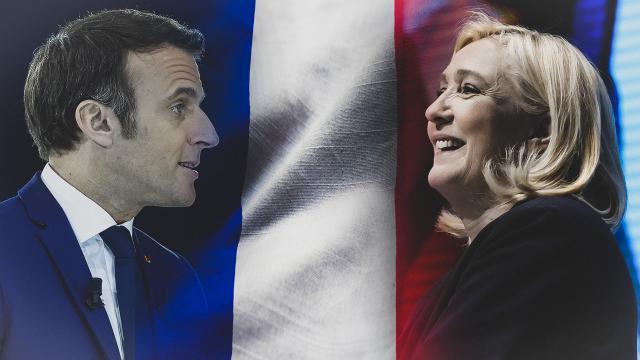BY PROFESSOR ILTER TURAN
Elections in democratic countries may sometimes produce unexpected results. Most recently, in addition to being unexpected, some results have also been undesirable. Although the victory of Orban might have been expected, for example, his margin of victory exceeded expectations. Equally importantly, it was hoped that Mr, Orban, whose commitment to liberal democracy with checks and balances and to European values is questionable, whose distaste for ethnic pluralism is manifest particularly on the topic of immigration, and whose supportive attitude to Russia in its attempt to gobble up Ukraine is clear, might be defeated. He came out glowingly victorious.
The elections in France also yielded unexpected and undesirable results. Until shortly before the elections, it seemed certain that Mr. Macron would win comfortably. Sure of his lead, he did not even announce his candidacy until late and hardly conducted a campaign. During the last few days of the campaign, it became clear that Marine LePen had begun to register significant improvements in her support. The election results confirmed what the polls detected. Mr. Macron received 27.8 percent, but Ms. LePen captured 23.1 percent. These percentages tell us who will compete in the second round of voting but not how those that voted for other candidates in the first round will vote. Even those who voted for the two finalists may change their vote in the second round. For example, they may prefer to stay home.
Voting behavior often defeats conventional logic. Conventional logic, for example, would dictate that those who voted for the socialist Mr. Melenchon, who came in a close third, would certainly not vote for the far right Ms. LePen. It appears, however, that a majority of those voters are considering voting for her in the second round. Who will go to the polls and who will abstain is another interesting question. Again, conventional logic would tell us that since it is the race where the president is elected, voters might show more interest in the second round. Yet, this is countered by the reality that those whose candidate did not make it to the second round may judge that none of the candidates are to their liking and therefore abstain. In other words, voter participation may be lower in the final poll.
Let us assume for a moment that Mr. Macron wins. At the time of this writing, it seems reasonably certain that his margin of victory will not be large. Equally disconcerting is the fact that the competition has been between the center right and the farther right. The left is not only weak but it is divided. Working class constituencies, apart from matters of a strictly economic nature like wages, find the positions of the hard right toward immigration, religious and ethnic pluralism and even the EU closer to their hearts. Urban intellectuals, in contrast, harbor political preferences that are more universalist and egalitarian, therefore closer to the public image of the left, but their ideas do not have mass appeal.
These circumstances will place Mr. Macron under great stress. He has been working very hard to be the leading figure of European integration, but it is not clear that he has obtained an unqualified mandate from his own society to continue with this mission. His efforts to affect greater integration of Europe may well run into intense resistance at home where constituents want to protect their jobs and local industries. They might not even want EU citizens to compete for their jobs. His attempts to liberalize the French economy lost its steam in his first term in the face of disruptive public protests. It is doubtful that he can return to a policy of further economic reform. There may be significant consensus among the winners and losers about developing greater strategic autonomy in Europe. As I have indicated in earlier columns, this is a French dream for which neither the rest of Europe is prepared nor does France have the resources to lead.
Some observers have suggested that since this will be Mr. Macron’s second and last term, he will not feel bound by considerations of reelection. It is true that a leader free from reelection concerns may be at greater liberty to pursue his political goals, but he cannot lead without paying heed to the basic preferences of his constituents. Therefore, we cannot expect Macron to be a strong leader for greater European integration and a defender of “alleged” European values when it is not clear that much of the citizenry is behind these aspirations. The best we can expect is that Mr. Macron will not go to the excesses Ms. LePen might. In fact, voters are being encouraged to vote for him not for his policies, but in order to keep Ms. LePen from being elected president. That is hardly a basis for a strong mandate.










